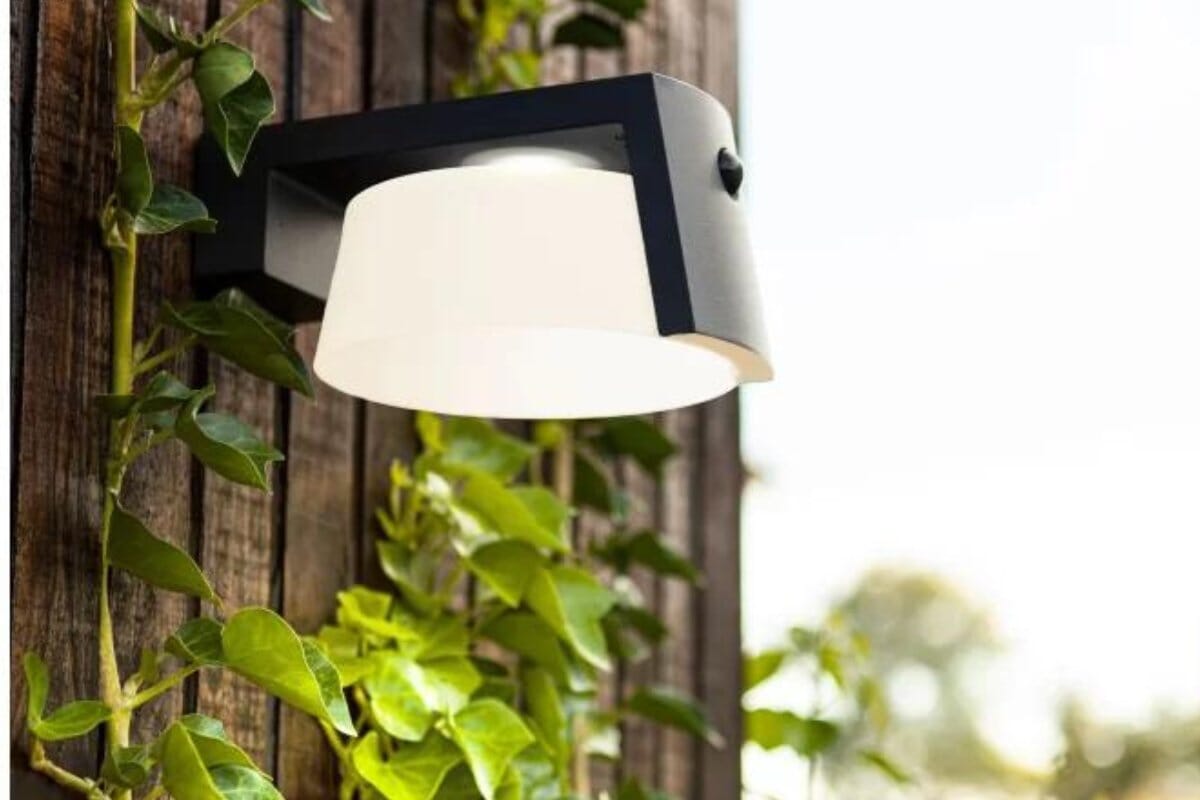As the days grow shorter and temperatures drop, many garden enthusiasts and homeowners worry about their outdoor lighting solutions.
A common question we receive at Outdoor-Lights.co.uk is: "Do solar garden lights work in winter?"
The short answer is yes, but there are important factors that affect their performance during the colder months.
Let's explore this topic in detail to help you get the most from your solar outdoor lighting all year round.
How Solar Lights Function Throughout the Seasons
Solar lights operate by converting sunlight into electricity using photovoltaic cells.
This energy charges internal batteries during daylight hours, which then power the lights after dark.
While the basic functionality remains the same regardless of season, several winter-specific factors can influence performance:
Reduced Daylight Hours
The most significant challenge for solar lights in winter is the reduction in daylight hours.
In the UK, winter days can be drastically shorter, with some northern areas receiving as little as 7 hours of daylight compared to 17+ hours in summer.
This means:
- Less time for solar panels to collect energy
- Potentially shorter illumination periods
- Reduced brightness if batteries aren't fully charged
Weaker Sunlight Intensity
Winter sunlight is less intense due to the lower angle of the sun in the sky.
Clouds, fog, and overcast conditions, common in British winters, further reduce the amount of solar energy reaching your lights.
This affects the efficiency of energy collection.
Cold Temperature Effects on Batteries
Most solar lights use rechargeable batteries that can be affected by cold temperatures:
- Battery efficiency typically decreases in cold weather
- Chemical reactions within batteries slow down
- Energy storage capacity may be temporarily reduced
Do Solar Lights Actually Work During Winter?
Despite these challenges, modern solar lights are designed to function year-round, including during winter.
Quality solar garden lights will continue to operate, though you may notice:
- Reduced running time compared to summer months
- Potentially dimmer illumination on consecutive cloudy days
- Longer charging times to reach full capacity
Tips for Maximising Solar Light Performance in Winter
To ensure your solar garden lights remain effective throughout the winter months:
1. Optimal Positioning
Position your solar lights to receive maximum available sunlight:
- Place in south-facing locations whenever possible
- Avoid areas shaded by buildings, fences or evergreen plants
- Angle adjustable solar panels towards the winter sun's path
2. Regular Maintenance
- Clean solar panels regularly to remove dirt, leaves, and snow
- Wipe panels with a soft cloth to maximise light absorption
- Check for and clear any debris that might block light sensors
3. Choose Quality Lighting Solutions
Not all solar lights are created equal.
Features that help winter performance include:
- Monocrystalline solar panels (more efficient in low light)
- Larger capacity batteries (store more power for longer nights)
- LED bulbs (require less energy to produce light)
- Motion sensors (conserve battery by only activating when needed)
4. Consider Hybrid Options
For critical areas requiring consistent lighting regardless of weather:
- Solar-battery hybrid lights with replaceable batteries
- Solar lights with mains backup options
- Dual-charging systems that can be USB-charged when needed
Best Solar Lights for Winter Use
When selecting solar lights specifically for year-round use in the British climate, look for:
- Weather-resistant construction (at least IP44 rating for outdoor use)
- Extra-large solar panels for maximum energy collection
- Energy-efficient LED bulbs with lower power requirements
- Automatic brightness control features that adjust output based on charge
- Long battery life ratings (8+ hours on a full charge)
Final Thoughts
Solar outdoor lights do indeed work during winter, though their performance may not match summer levels.
With proper selection, positioning and maintenance, they remain an eco-friendly, cost-effective lighting solution for your garden or outdoor space throughout the year.
The technology behind solar lighting continues to improve, with each generation offering better cold-weather performance.
For reliable illumination during the darkest months, combine quality solar lights with strategic placement and reasonable expectations about running time.
If you're looking to enhance your outdoor space with lighting that works year-round, browse our collection of premium solar garden lights designed specifically for the British climate at Outdoor-Lights.co.uk.
Frequently Asked Questions
How many hours will solar lights stay on during winter?
Most quality solar lights will provide 4-6 hours of illumination during winter, compared to 8-10 hours in summer months, depending on the previous day's sunlight exposure.
Should I bring solar lights indoors during winter?
For most weather-resistant solar lights, this isn't necessary. However, if you experience extreme conditions or want to preserve decorative lights, storing certain types indoors can extend their lifespan.
Do solar lights need direct sunlight to charge?
While direct sunlight provides optimal charging, most modern solar lights can still charge (albeit more slowly) with indirect sunlight or on overcast days.
Can snow damage solar lights?
Quality solar lights are designed to withstand snow, but heavy accumulation that covers the solar panel will prevent charging. Regularly clearing snow from the panels will ensure continued operation.
Are there special winter solar lights available?
Yes, some manufacturers offer "cold weather" solar lights with enhanced battery technology and more efficient panels specifically designed for regions with limited winter sunlight.


